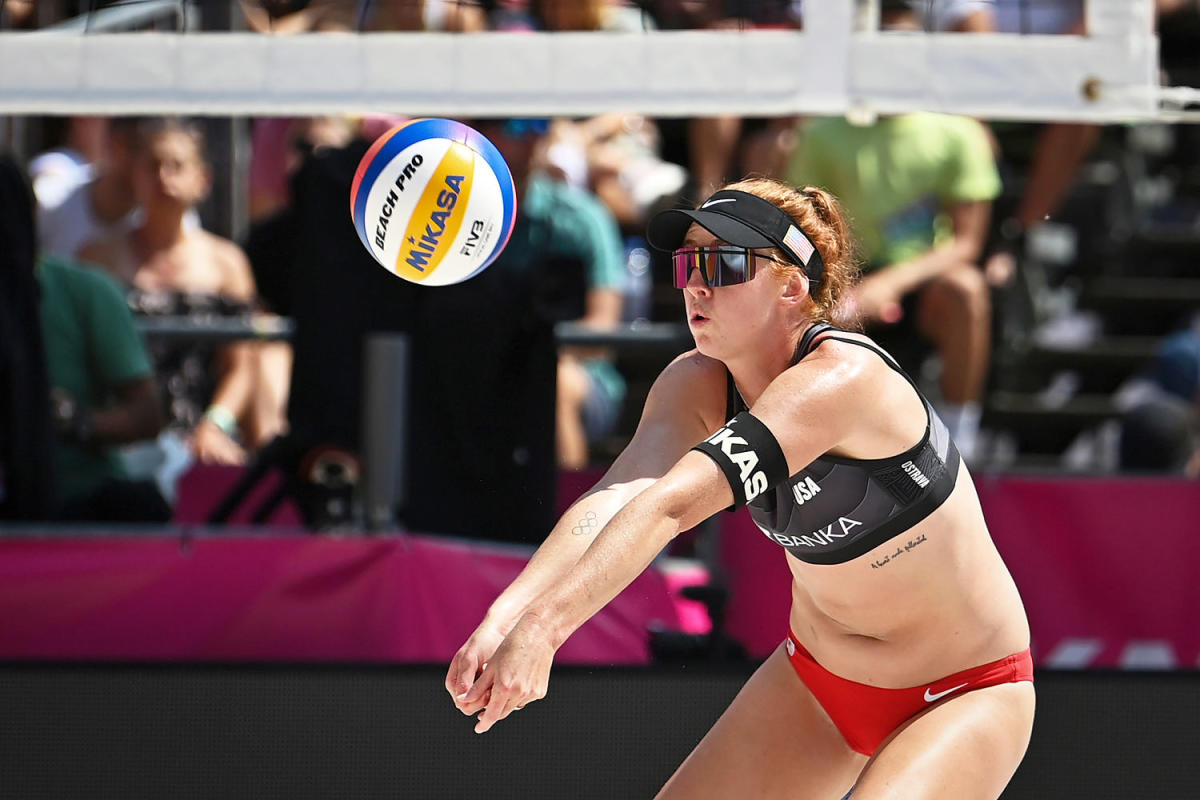Sports
U.S. Olympic beach volleyball star describes avoiding negative comments online to focus on mental health

Kelly Cheng reached a career milestone when she competed in her first Olympics at the Tokyo Games. But instead of enjoying competition against the world’s best, the U.S. beach volleyball star felt dread.
“Every match, every point, every contact on the ball felt like life or death,” she said. “I was stressed, mentally, physically.”
Cheng said criticism from her detractors took a toll on her mental health on NBC’s ’ “My New Favorite Olympian” podcast.
“A lot of people don’t like how I play volleyball,” she said. “Me reading (online hate) is letting it in. So that really feeds into the negative self-talk because then that negative voice in my head starts repeating those things that I’ve read.”
Cheng’s performance can also be hurt when she doesn’t play to her own expectations as an Olympic athlete.
“It’s this super-heavy pressure that I put on myself,” she said. “It gets hard to breathe. My whole body gets tight. Sometimes when I’m in that negative mindset, it almost feels like a train coming at me. And if it gets too fast, I can’t stop the train.”
Cheng — who won a gold medal with Sara Hughes at the world championships last year — says she’s taking matters into her own hands by blocking anything that threatens her mental health. She has learned to avoid negative comments online and has taken steps to work with a sports psychologist to reframe her negative self-doubt.
“What I’ve worked really hard on is this idea of neutral self-talk,” she said. “So, not ‘I should be doing this or that.’ It’s very small, productive sentences to myself. Let’s say I shanked a ball. Instead of … getting really critical of myself, like, ‘Gosh, you suck. You’re not going to win this game. You shouldn’t even be out here,’ I push all of those thoughts away and get back into neutral self-talk, and that’s been super helpful for me.”
Cheng is using her experiences to provide mentorship by helping the next generation of volleyball players prioritize their mental health. In 2022, she launched the Beach Mentorship Camp, where she rents a house every year and pairs eight teenage girls with eight professional beach volleyball players for three days of mentorship in California.
But the mentoring doesn’t end after the three days in camp. Cheng encourages mentors to maintain relationships throughout the year as a form of building support.
“If time permits, to keep investing in your mentee at least once a month, take them out to dinner, go bowling with them, just keep pouring into this [person being mentored], keep having those interactions together and just see how she can flourish,” she said. “Having that influence in her life. I just think it’s going to be this really special thing that these girls are going to be able to hold on to forever and now have this older sister always in their corner.”
The mentorship is already making an impact. Cheng has developed a “big sister” relationship with Southern Cal beach volleyball player Grace Hong. Their bond has continued to grow as their conversations have evolved from “surface level” topics about volleyball to deeper discussions of the importance of mental health.
“I could go to [Cheng] with anything,” Hong said. “I could go to her with something that has nothing to do with volleyball and she would give you the best advice on the planet. It’s like she has ultimate knowledge about everything.”
By providing mentorship, Cheng inspired Hong to give back herself. Hong, who was born with a right hand smaller than her left, recently launched her own foundation called Grip: The Grace Hong Foundation for Limb Difference Awareness.
“Kelly played such a huge role in that, because she was my outlet and I went to her with everything,” she said. “I’ve cried to her about my hand countless times, and she is the one that told me that I’m here for a reason and I was able to do everything I did for a reason, and I just wanted to be able to do something in my life that would help anybody that’s like me or anybody that has something that they think holds them back.”
Knowing she has made a positive impact has helped Cheng improve her own mental health.
“I just feel so fulfilled being around [Hong] and pouring into her,” she said.
This article was originally published on NBCNews.com







:max_bytes(150000):strip_icc()/roundup-writereditor-loved-deals-tout-f5de51f85de145b2b1eb99cdb7b6cb84.jpg)


